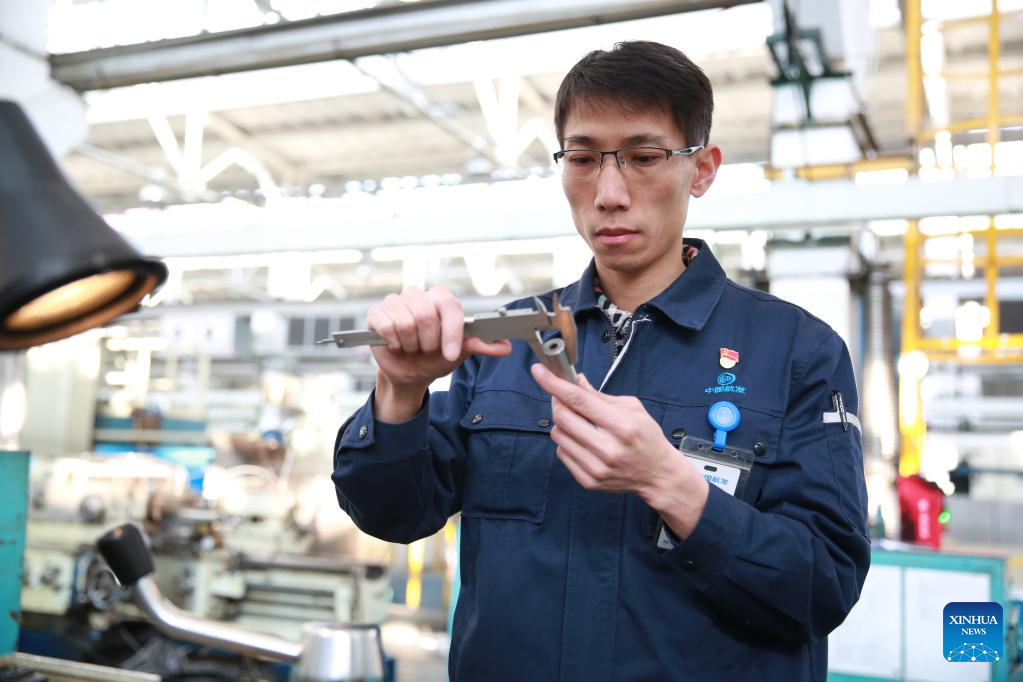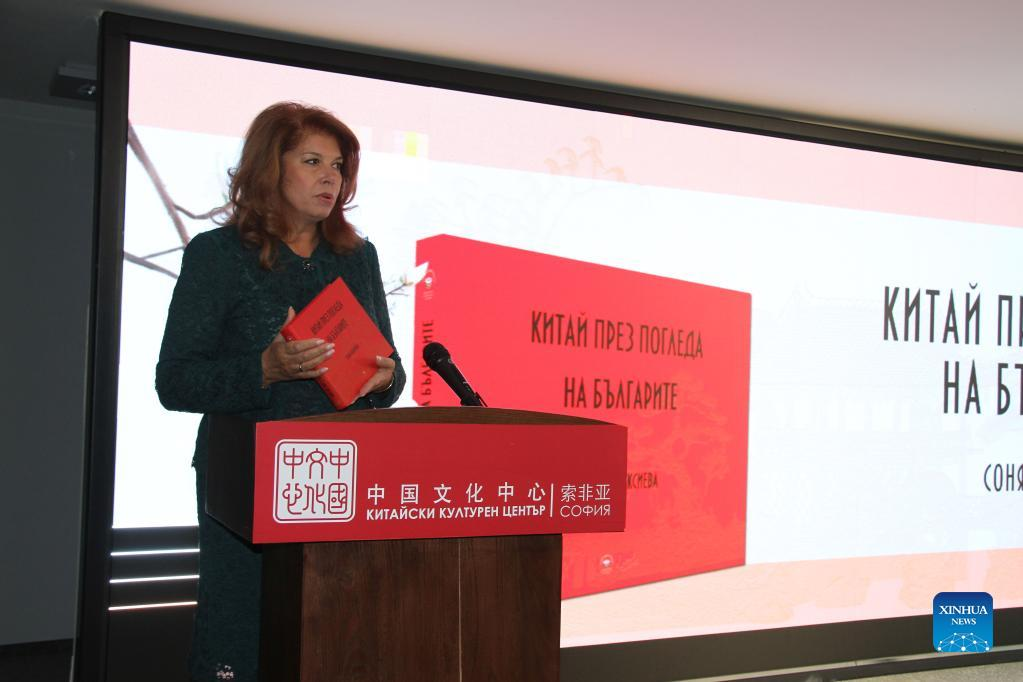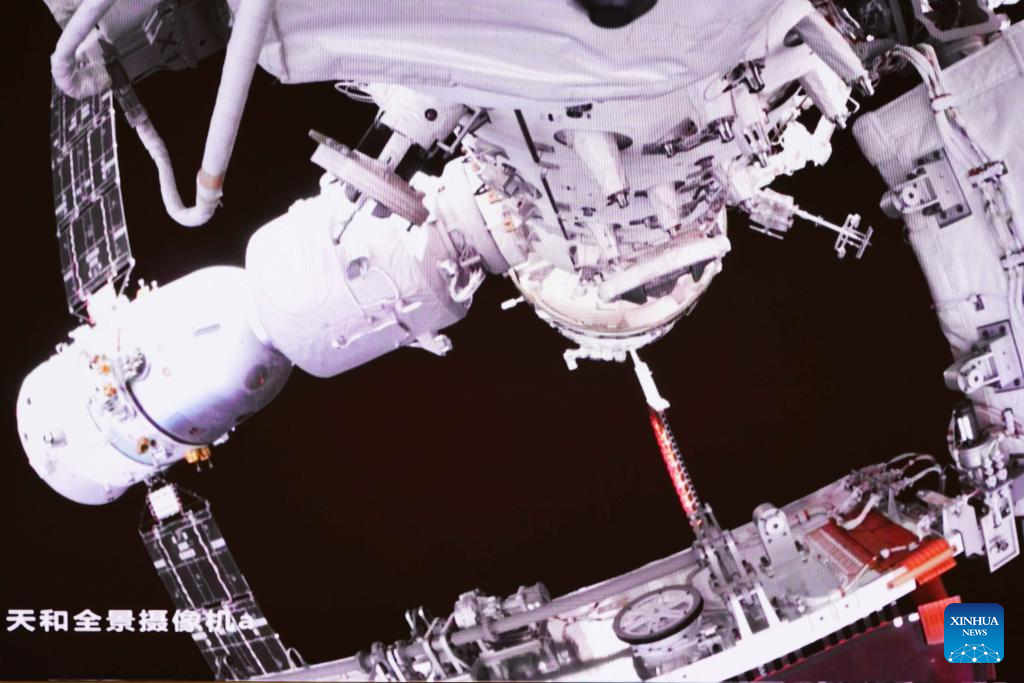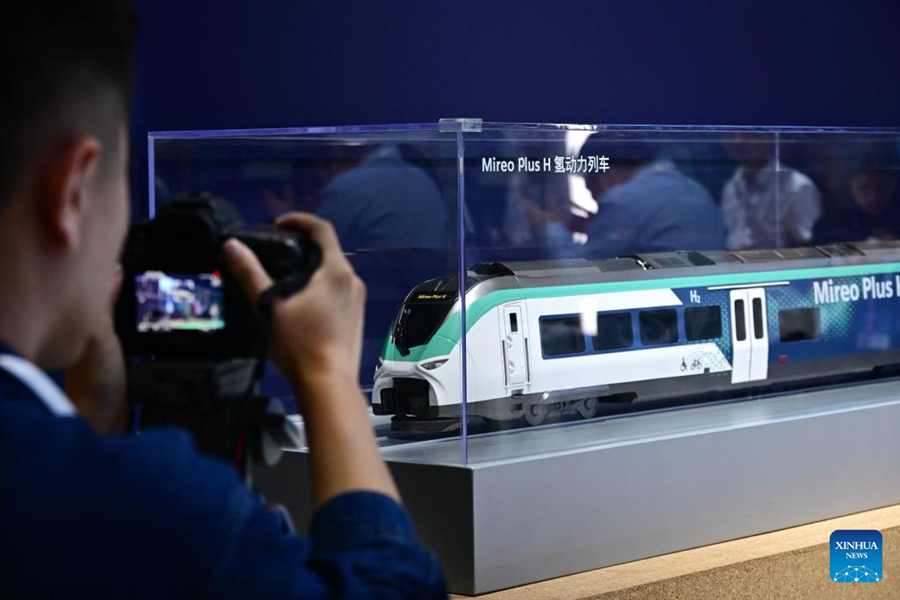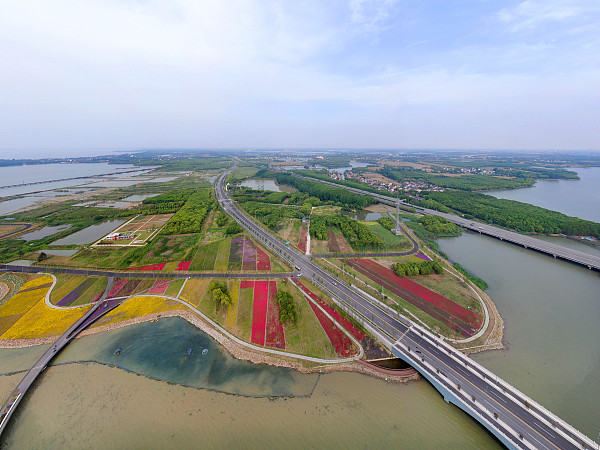
(CFP Photo)
The government work report, delivered at the second session of the 14th Jiangsu Provincial People’s Congress, emphasized the importance of advancing the integrated development of the Yangtze River Delta and high-quality growth of the Yangtze River Economic Belt.
In the “two sessions,” deputies to the Jiangsu Provincial People’s Congress and members of the Jiangsu Provincial Committee of the Chinese People's Political Consultative Conference shared insights and suggestions to promote the endeavors.
The delta, taking up only 4% of China's land area, contributes about 25% of China's total GDP. Encompassing the provinces of Jiangsu, Zhejiang and Anhui and Shanghai municipality, it has one of the most vibrant, open and innovative city clusters in the country.
Zhang Chonghao, chairman of Changzhou Tengen Industrial Development Co Ltd, suggested that cities in the delta region should enhance their energy storage services for industrial development. “It’s necessary to introduce laws and regulations for the energy storage sector, facilitate related services, and expand enterprise financing channels, including loan support,” Zhang said.
Hua Guihong, president of Nanjing Normal University, said regional industrial coordination relies on high-level sci-tech innovation. Hua highlighted the role of university research in establishing globally influential industrial innovation centers.
The government work report also noted that Jiangsu will promote integration of its coastal ports with Shanghai.
In response, Chen Ming, chairman of Jiangsu Port Group, proposed close cooperation between the ports of Lianyungang, Suzhou and Nanjing and importing companies specializing in key materials like iron ore and coal. He advocated supporting the expansion of the international fleet size, opening up new shipping routes, and enhancing river-sea intermodal transportation.
Shang Qingfei, secretary of the CPC Nantong University Committee, mentioned that strengthening vocational education and training programs can help cultivate skilled workers and management personnel for industrial development.
Jiangsu boasts a sophisticated shipbuilding industry, producing over half of China's new vessels annually. According to Chao Sih-ming, chairwoman of SeaKapital Limited, Jiangsu should combine its achievements in energy storage with its shipbuilding technological strengths. Meanwhile, Hong Kong can use its status as financial hub and shipping center to provide advanced training in shipbuilding and transportation.
Another topic attracting wide attention is integrating Yangtze River history and culture as well as natural landscape into urban and rural development.
Chen Aibei, vice-president of the Jiangsu Provincial Academy of Social Sciences, emphasized the importance of branding in the development of tourism, cultural creation, performance, and the film and TV sectors. Chen advised leveraging features of villages, water conservancy projects, industrial heritage, and museums along the river to create distinctive recognition.





